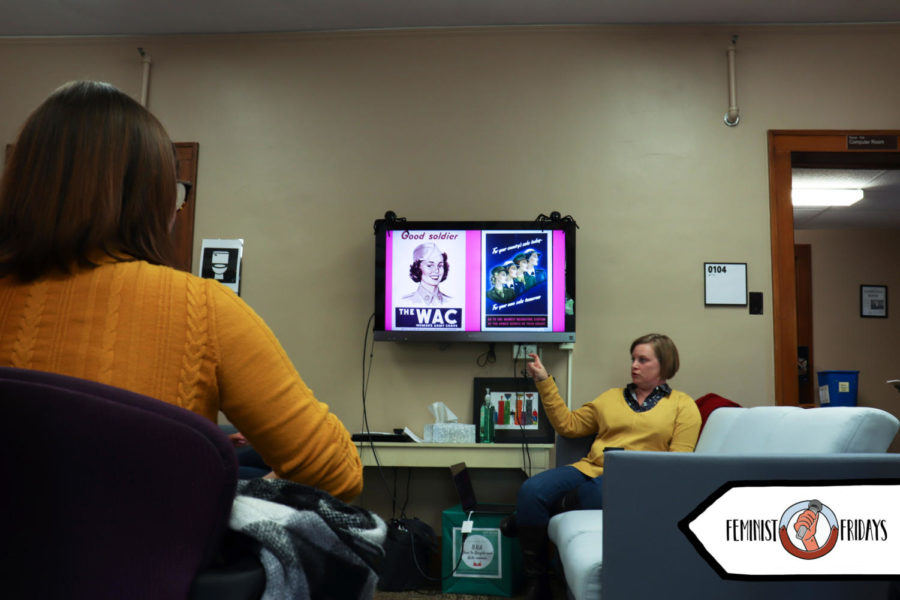Feminist Friday to examine judgment of women
Feminist Friday speaker Amy Rutenberg, assistant professor of history, led a group discussion titled ”Uncle Sam Wants Who? Women and the Draft” on Oct. 25.
October 31, 2019
As another week comes to a close, an opportunity to get some warmth and snacks arises again for this Feminist Friday’s talk about the “monstering” of women throughout history.
At 1 p.m. in the Margaret Sloss Center for Women and Gender Equity, also known as the Sloss House, Chloe Clark, assistant teaching professor of English, will be leading this week’s discussion, “Our Monsters, Our Selves: How We Can Think about Privilege and Othering through Monstering.”
According to Clark, “monstering” in simplistic terms is “as a group or society, turning others that differ from us in any ways as outsiders.”
Clark regularly teaches lessons on monstering for her courses and the effect privilege has on people.
Privilege is defined as the special right, advantage or immunity granted or available only to a particular person or group, according to the Merriam-Webster Dictionary.
Everyone in some shape, way or form has been awarded some type of privilege, but factors such as age, race and gender all impact the amount of privilege awarded.
Buzzfeed offers an in-depth quiz to figure out the amount of privilege people are rewarded, which can help enable a better understanding of the conveniences and advantages one has over another.
For hundreds of years, people have seen this inequality, especially in terms of gender. Women have long been monstered. Take, for example, the women of the famously-known town of Salem, Massachusetts.
During the Salem Witch Trials, only women were accused of witchcraft based on fear of any behaviors men did not approve of or want.
“We can see any case of a woman or woman-identifying politician where their sex lives are brought into the way we discuss them, and we kind of monsterize women’s sexuality much more than we control men’s sexuality, especially in regards to positions of power like politics, business — even celebrities in movies,” Clark said.







